Caitlin Johnstone, a fellow blogger much more prominent than I, recently published a post titled “The Screens,” which inspired and incited me to write this text here with my own take on this issue.
I cannot watch a screen for too long, it makes me both dizzy and itchy. I’m not built for sitting still for a longer time, I want to move, walk around, bend and stretch as I go through the garden weeding, planting, and harvesting.
There are probably many other people who are not designed to sit still for a longer time. They feel itchy like me, their adrenaline levels rise, they get aggressive. They would like to go out, but they live in apartment blocks, maybe even in a high-rise in a crowded, noisy city. If they go out they have to take care not to be run over by a car, shot by a cop because of suspicious and threatening movements, or getting lost in the labyrinthine aisles of a supermarket or mall.
People who observe the world via TV, computer, or smartphone screens see an abridged and strangely distorted picture of the world. As they are glued to the screens of various sizes for many hours, weeks, and month, this simplified view becomes their reality — a virtual reality indeed.
When they finally escape from their prison of screens to face the natural world, they are completely unprepared for the encounter. The natural world is immensely, unimaginably complex. Every meter of the garden or the forest contains more details than could be binary coded in all of Amazon’s cloud service, maybe even in all of the internet data centers.
The encounter with nature after the abridged life at the screens will be a shock for many, but also a relief for some. One gets numb and blind for the beauty of real life following protracted screen time. The damage is both physical and mental, and the recovery may take years.
And yet, maybe in the end it is a blessing, that people are trapped in front of their screens. We are too many, and if all city dwellers would emerge from their flats in the high-rises and invade the natural lands like a swarm of locusts they only would destroy the few pristine places still left unharmed.
We see what happened to the national parks and monuments. We see what happened to the world heritage sites. We see what happened to the idyllic islands who became prominent tourist destinations.
An interface to their world
Screens don’t lie, I titled this text provokingly, and many readers may object, shouting at me: “Wrong, they lie all the time, they tell fairytales, they mislead, obscure, omit, blur, distort. Don’t belief the screens!”
Well, screens are just an electronic device, the pictures and movies which they show are generated in computers, tablets, smartphones, or receivers of TV signals (terrestrial and cable). Most often the computers just relay a signal stream which they receive from the internet.
Screens are also only a part of the interface, they are complemented by loudspeakers, which are either integrated into the screens or installed as stereo loudspeaker boxes left and right beside them with a subwoofer on the floor. Maybe additional devices for smell, taste, and touch may be added in future, but at the moment screens for sight and loudspeakers for hearing are sufficient to captivate people.
The computer keyboard and a web camera with integrated microphone are also important parts of the interface, they allow some kind of interaction and response, they also allow to track people, to surveil them, and get an idea what they are up to.
A smartphone integrates all these interfaces into one handy gadget.
Why are we surveilled?
We live in a time of great inequality and social injustice. People are told that, if one just works hard enough, she/he will finally make it. Everybody gets the chance, the sky is the limit, rags to riches, bootstrapping entrepreneurs, self-made millionaires, the “American Dream.”
The workers who toil in Amazon warehouses, ruining their health, while their boss amasses a fortune of 120 billion US$ to become the richest man in the world, don’t believe in all that. The construction workers, who grind away till they fall from the scaffold, the miners, who die of black lung disease, the teachers and nurses, who work for a pittance, the clerks and low level administrators, trapped by student debt, the part time and contract workers on minimum wage, they all don’t believe this myth anymore, for them the American Dream has become their American Nightmare.
“Keep your nose to the grindstone,” so they say.
Who says that?
There are essentially two ways to create wealth: One is to work hard to benefit society, the other is to inherit a lot of money or get control of it by some unsavoury, mean, or outright criminal machinations. This money is then invested in property and company shares, or lent for interest. People who make their money with the second method are called rentiers.
This is not a new phenomenon, this is not a unique feature of capitalism, there were always rentiers, living from rent and interest, there were masters and slaves, land owners and sharecroppers, landlords and tenants, aristocrats and peasants, kings and their subjects.
Occasionally the slaves, sharecroppers, tenants, peasants, and subjects got the idea that living from other peoples work was not just and they rebelled and killed all rentiers, like it happened for instance in the French Revolution of 1789.
Such an upheaval could come to pass again. The rentiers are aware of that possibility and they take precautions. They have occupied all positions of power (military, police, state institutions) directly or with their puppets and allies, they surveil the populace to find potential troublemakers, and they have bought all media organizations and most journalists. Journalists who cannot be bought are blacklisted, harassed, persecuted, or killed.
Who are the rentiers?
People who work in the financial sector, which has grown beyond all proportions and is downright parasitic, are the most easy to detect. There are for instance investment bankers (John Paulson, Ronald Perelman, Carl Icahn), venture capitalists (Peter Thiel), hedge fund managers (Ray Dalio, George Soros, David Shaw, Jim Simons), and vulture fund owners (Paul Singer). There are the CEOs of the worlds big banks (HSBC, JPMorgan Chase, BNP Paribas, Mitsubishi UFJ, Bank of America, Goldman Sachs, Morgan Stanley, Citi Group, Credit Suisse, Barclays, etc.).
The worlds billionaires and higher ranking millionaires surely deserve to be included: Jeff Bezos, Bill Gates, Warren Buffet, Bernard Arnault, Mark Zuckerberg, Armando Ortega, Carlos Slim Helu, Larry Ellison, Larry Page and Sergey Brin, Michael Bloomberg, the Koch brothers, the Waltons, Sheldon Adelson, the Mars family, just to name a few. Forbes found a record 2,208 billionaires this year, collectively worth 9.1 trillion US$. US-Americans lead the way with 585 billionaires, followed by China with 373.
While the UN Millennium Development Goals remain unfulfilled and 740 million humans still live on less than 1,90 US$ a day, the billionaires club welcomes new members and wealth accumulation is increasing exponentially. In 2017 billionaires across the globe grew their wealth by 20 percent (1.4 trillion US$). Inherited wealth has grown accordingly. From 2012 to 2017, the sum passed on by deceased billionaires to beneficiaries has increased by an average of 17 percent each year.
There are people who will not be shown in any list of the wealthy and famous, because they prefer to hide their possessions from tax revenue services and the public. They are often shareholders in multiple corporations, the money is hidden in oversee tax havens, managed by obscure letterbox firms.
The power people
Furthermore, there are people who’s life ambition is not necessarily to amass wealth, but to control everything around them. Psychologically this can be explained by our deep desire for security, which is probably a genetic trait. The more we are in control, the more secure we feel.
To be on top, to lead, to rule provides security, because the rulers can command their subordinates, assistants, underlings, minions, lackeys to shield and protect them. Military strength provides security because it deters enemies and competing peers.
Most positions of power and influence are occupied by men, because males have the additional archaic urge to get access to as many females as possible in order to pass on their genes. Positions of power, influence, fame, and wealth provide this access.
The power people (politicians, political insiders (deep state, permanent government), CEOs, military leaders) are rentiers as well. They don’t own the lands riches, but they control access to these riches. It is only natural, especially in societies where amassing money and material goods is the ultimate objective, that the power people and the rentiers collude and form a ruling class.
This ruling class is only a tine percentage of the population. The 585 US-billionaires are just 0.000172 percent of all US-Americans, and even if one assumes, that influential corporate, political, and military leaders together amount to about 20,000 people, that would be still only 0.006 percent of US inhabitants.
How can such a tiny group control a complex and diverse society?
Means of power
It is possible, as history has shown, by using cultural traditions (when rulers protect cultural heritage and nurture art), religion (emperor Constantine the Great, medieval popes and clergy, all state religions), and social norms (acceptance of slavery, peasantry, cast systems, and class distinctions as normal and natural states).
It is possible, using rigorous and harsh security by police, militias, and military. All-encompassing surveillance is an indispensable requirement for this method of governing, because critics, dissidents, saboteurs, resistance cells have to be detected and eliminated before they unite (organize) to form a mass movement and spark unrest or a revolution. One party states (China) make surveillance easier, but the US Republican-Democrat duopoly is nearly as efficient and beyond that even feeds the illusion of democracy.
It is possible, using education, propaganda, indoctrination, and brainwashing.
This method of achieving acquiescence, obedience, and compliance of a suppressed, abused, and exploited populace has been used throughout history, from the cave paintings to Greek tragedies to medieval minstrels to poets, scholars, philosophers, novelists, journalists, to mainstream mass media (press, radio, TV-networks), news organizations (Reuters, Associated Press, CNN, Fox, BBC, Bloomberg, Al Jazeera, RT), social media (Facebook, Twitter, Instagram, YouTube, Google+, VKontakte), search engine rankings, and Wikipedia.
To make propaganda, indoctrination, and brainwashing easier, US media juggernauts have imposed a global (Anglo-American) pop culture, thereby reducing cultural and social diversity. Interestingly, the nations where English language and the Roman alphabet are not widely used are also the ones which vehemently resist Western domination (Russia – Cyrillic, MENA – Arabic, China – logograms or Pinyin).
Surveillance made easy
Technological progress has made surveillance straightforward and effortless. While East Germany’s Stasi had to rely on folders with handwritten notes, todays mass surveillance uses databanks where information can be found with a few keystrokes or mouse clicks.
There is still human intelligence, there are secret agents, traitors, collaborators, infiltrators, and agent provocateurs, there are sting operations and entrapments. But the main spying is done via electronic devices.
Data collection uses CCTV (Closed Circuit TV) monitoring, phone tapping, license plate recognition, GPS or multilateration of mobile phones, stored emails, web traffic, search history, purchases, and messaging. Webcams and their microphones can be switched on by spyware without the user even noticing, implanted keyloggers can record every keystroke and mouse movement.
The USA here again leads the way. Surveillance bots sift through Internet traffic for certain words or phrases and report to human investigators traffic that is considered suspicious. Personal computers or smartphones are targeted with spy software, such as the FBI’s Magic Lantern and CIPAV.
Under the Communications Assistance For Law Enforcement Act, phone calls and Internet traffic are required to be available for unimpeded real-time monitoring by law enforcement agencies. AT&T and Verizon have contracts with the FBI, but the StingRay tracker can take over and monitor also any other mobile phone or smartphone.
The NSA runs a database known as Pinwale, which stores and indexes large numbers of emails from US citizens and foreigners. The NSA further runs a program known as PRISM, which is a data mining system that gives authorities direct access to information from technology companies. Another program, known as CO-TRAVELER, is used to track people of interest and analyze their movements.
A gigantic datacenter in Bluffdale, Utah stores all types of personal data trails, mainly Internet data and phone records from the MAINWAY database. The storage capacity is estimated to be between 3 and 12 exabytes. NSA supercomputers (Windsor Green) try to break encryptions, the NSA is also developing quantum supercomputers for this purpose.
Using the pretext of crime and terrorism prevention, legislative attempts to end anonymity and privacy on the internet are pursued in many countries, but these initiatives are not pressing because even without legislative backing, the big web portals, social media, and e-commerce are eager to lift the vail of anonymity in order to collect as much personal information as possible and build a detailed profile of every user.
88 percent of free smartphone apps share data with Google, apps also share data with Facebook, Twitter, Verizon, Microsoft, and Amazon. Most apps track behavior across different digital services, which lets companies build up detailed profiles of users.
Attributes of the operating system, the browser, and the hardware are used to identify the visitor even if one surfs the net with a dynamic IP or a VPN (Virtual Private Network). Most companies store cookies, Flash cookies, and all other kinds of small innocuous files onto every device which connects to their website. These files are read by other websites to feed various databases about peoples net activities. All this information is eventually combined into one gigantic database.
Stored information can include age, gender, location, purchases, and details about programs and system configurations on the computer, tablet, or smartphone.
The collected data is used for targeted advertising, credit scoring, targeted political campaign messages, or government profiling and surveillance.
In China it feeds the Social Credit System, a standardized assessment of economic and social reputation which can be used for school admissions, job applications, promotions, access to loans, visa applications, etc.
The loss of anonymity will make people more careful, will suppress dissent and criticism, will prevent calls for protest actions and civil disobedience. The loss of anonymity will quiet opposing voices and will make an open discussion about controversial issues difficult if not impossible. When Big Brother is watching, only the undaunted and most courageous will continue to raise their voice. The timid and faint-hearted will comply and obey — and retreat into “inner emigration.”
The blogosphere will become more quiet, less disharmonious, less confusing, and also less interesting. The self censorship of corporate media is already step by step extended to alternative media and to the blogosphere. We will hear only the officially sanctioned narrative and see only approved pictures. We will be fed government and corporate propaganda by mainstream media, by alternative media, by independent journalists, by everyone.
This is mind control — what else should one call it?
Mind control
I don’t give much weight to conspiracy theories, including the various tales concerning “mind control.” Of course, everybody practices “mind control,” the authorities, every talk show host and TV commentator, pundits and experts of all colors and leanings and statues. The most nimble advertising agency practices mind control and is a laboratory for deception and disinformation. We live in a world of artifice, illusions and delusions, figments, fallacies, and ambiguities. Mind control is everywhere, it is practiced by everybody, it is a ubiquitous and unavoidable aspect of our modern life.
Moving pictures are very powerful and convincing. Together with the right soundtrack they can be emotional touching and persuade the viewer, that the images he sees on a big or a small screen have indeed some conformity with reality and mirror normal everyday life. Film producers, script writers, sound track composers, camera men, and actors have honed their skills now for 120 years and over all this years they became quite good in mind control.
If you ever wondered, why the American way of life is so desirable and appealing to other nations despite the fact, that between 14 and 16 percent of US-Americans live in poverty, 44 millions can only get by with food stamps (SNAP), medical bills bankrupt one million every year, and half a million are homeless, just watch a few American movies, TV shows, and YouTube videos.
Cuba trumps the USA in various social parameters (health care, income equality, crime, employment). The unemployment rate is 1.7 percent, social security is a universal right. Poverty is one of the lowest in the developing world. The reason that thousands of Cubans still want to emigrate to the USA is television. Cubans watch the shows of US networks and they see good looking and well dressed people who drive expensive cars and live in luxurious homes.
They don’t see the homeless, the destitute, the overworked and underpaid, they don’t see the families who just had to leave their foreclosed homes and are packed in an overcrowded flat of a relative. They don’t see the dreadful pictures from Haiti and Puerto Rico which could lead them to the conclusion that their country would very likely be in a similar state if the Bay of Pigs invasion had succeeded.
Not only producers, script writers, cameramen, photographers have honed their skills, the politicians, press secretaries, pundits, journalists, TV and Radio show hosts have evenly advanced their prowess, building on Edward Bernays Public Relations, and the extraordinary work of Joseph Goebbels.
Really gifted propagandists use the emotional power of words. Every word in our vocabulary has an emotional connotation, and so do phrases and often used sentences. One can describe bad things with positive words that stimulate positive emotions and completely change the feelings about these things alone by the right wording.
The masters of mind control are also masters of semantics and constantly change the meaning of words, rewrite the dictionaries, and invent new euphemisms and descriptive phrases.
People are not killed by bombs, they have “lost their lives.” It they are enemies, they have been “taken out,” “taken care of,” been “terminated.” If they are lucky enough not to be perceived as enemy soldiers, insurgents, or terrorists, they are “collateral damage.” Prisoners are never tortured to death but parish in a “correction facility” as a result of “enhanced interrogation.”
Politicians, press secretaries, TV and Radio show hosts, journalists, pundits, they never lie, they maybe “bend the truth”, or “color the truth”, they misspeak, misstate, misrepresent, or are misinterpreted.
Internet censorship
Shortly after the US presidential elections in November 2016, which ended with Hillary Clinton’s defeat, the Washington Post’s Craig Timberg published a dubiously sourced report, headlined: “Russian propaganda effort helped spread fake news.” The article hyped up a McCarthyite effort by a shadowy, anonymously run organization called PropOrNot to blacklist some 200 American media outlets as Russian “online propaganda.”
Among the criteria PropOrNot identified as signs of Russian propaganda were: “Support for policies like Brexit or the breakup of the EU and Eurozone,” and “Opposition to Ukrainian resistance against Russia or Syrian resistance against Assad.” PropOrNot called for “formal investigations by the US government” into the outlets it had blacklisted.
In August, the newly created ASD (Alliance for Securing Democracy) aimed to expose how supposed Russian Twitter bots were infecting US political discourse with divisive narratives. It featured a daily online dashboard that highlighted the supposed bot activity with easily digestible charts, though the site avoided naming any of the digital Kremlin influence accounts it claimed to be tracking. The initiative was immediately endorsed by John Podesta, former chief of staff in Hillary Clinton’s presidential campaign.
Two weeks ago Facebook and Twitter deleted the accounts of hundreds of users, including many alternative media outlets. Among those wiped out in the coordinated purge were popular sites that scrutinized social discrimination and US interventionism, like The Free Thought Project (nearly 3 million likes), Anti-Media, and pages of journalists like Rachel Blevins.
Pages that monitored police brutality were also purged, including the page Cop Block and Police the Police. Several antiwar pages were taken down, along with libertarian pages and left wing pages like Reasonable People Unite. Facebook accounts used by people who administered those pages were removed as well.
When Facebook announced the purge in a blog post on its website, it ambiguously claimed, the pages and accounts had “broken our rules against spam and coordinated inauthentic behavior,” and stated that the reason they were removed was based on behavior, not on content.
This despite the fact that sites like The Free Thought Project were verified by Facebook and widely recognized as legitimate sources of news and opinion. John Vibes, an independent reporter who contributed to Free Thought, accused Facebook of “favoring mainstream sources and silencing alternative voices.”
Just now Twitter has suspended @PaulCraigRobert, the account of anti-war commentator, economist and former Assistant Secretary of the Treasury Paul Craig Roberts.
Back to the screens
Caitlin Johnstone wrote in her at the start of this text mentioned blog post:
We are surrounded by screens full of voices that are always lying to us, and experts wonder why we’re so crazy and miserable all the time.
The screens tell us, “This is a perfectly normal and sane way of doing things. It is perfectly normal and sane to strip the earth bare and poison the air and the water in an economic system which requires infinite growth on a finite planet. People who say otherwise are raving lunatics!” And the social engineers wonder why there’s increasing disaffection and alienation among the populace.
The screens tell us, “Just spend your time in this world turning the gears of the machine and you will be happy. The machine is your friend. The machine takes care of you. Work hard pulling its levers and greasing its cogs until you are old and you will gain satisfaction,” and then they wonder why we’re all using antidepressants like candy.
The screens tell us, “We need to drop explosives on Nation X because they need Freedom and Democracy. We know we said that about Nation Y and Nation Z and that went terribly wrong, but that’s because it wasn’t managed properly. Trust that it is good and proper for the citizens of Nation X to be killed with bombs and bullets,” and then they wonder why people keep snapping and committing mass shootings.
The screens tell us, “You are crazy and stupid if you want a functioning healthcare system. Are you trying to put our billionaires and military out of business?” and then they wonder why people are becoming paranoid and angry.
The screens tell us, “Look at that gibbering maniac trying to get a third party up and running in the most powerful nation in the world! Only someone who is deeply awful and defective would believe that the two party system isn’t serving us,” and they wonder why everyone feels disempowered and unheard.
The screens tell us, “Of course this is the way things are; it’s the only way things could ever be. Anyone who would try to change any part of this is either mentally ill or a Russian propagandist,” and they wonder why people disengage and numb themselves with opiates.
The screens tell us, “Everything is great. Everyone is doing fine. Everyone is happy. Look how happy everyone is on this sitcom. If you aren’t happy like that, it’s not because of the machine, it’s because of you. People need to be protected from your insanity. You mustn’t be allowed on any screens. You need to be silenced on social media. Trust us. Don’t trust yourself. Don’t trust that growing, gnawing sense that everything is fake and everything you’ve been taught is a lie. We have never lied to you. You are misremembering things because you are confused.” And the social engineers wonder why people are trusting them less and less.
The screens tell us, “War is normal. Poverty is normal. Mass surveillance is normal. Censorship of dissenting ideas is normal. Mass media propaganda is normal. Escalating wealth and income inequality is normal. Escalating police militarization is normal. Escalating tensions between nuclear superpowers is normal. Looming ecological disaster is normal.” And people wonder why everything feels like a bubble balancing on a house of cards that was built on top of a ticking time bomb.
And the experts wonder why the old tricks are finding less and less psychological purchase. And we wonder why it is beginning to feel as though we are being startled out of a very long and horrible nightmare. And our rulers wonder, in their very few still and sincere moments, if it was wise to build their empire upon a sleeping giant.
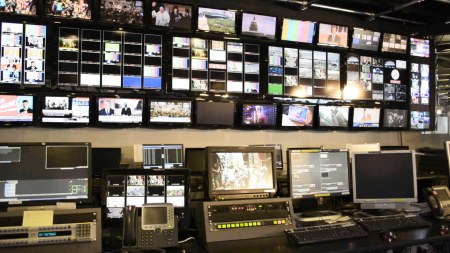
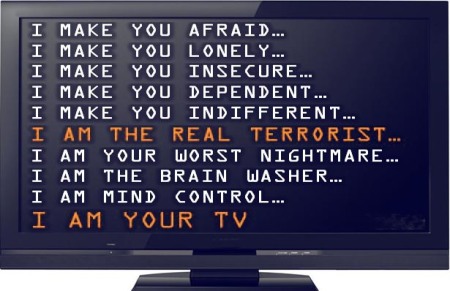

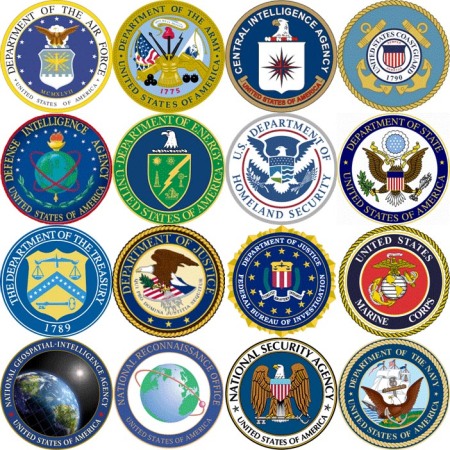
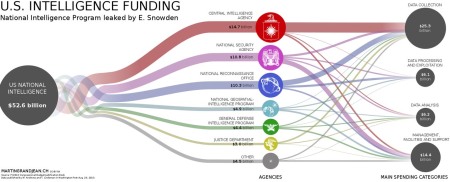
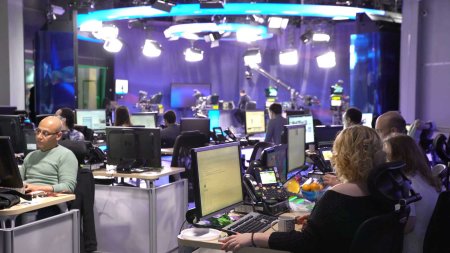
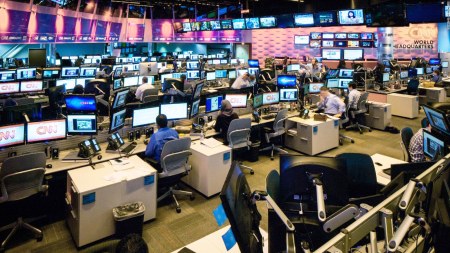
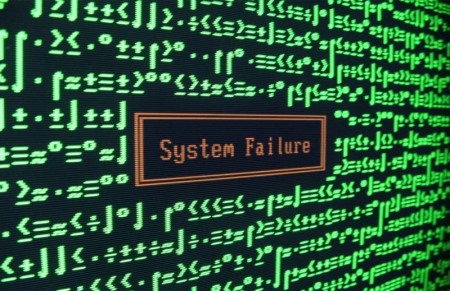

Keine Kommentare:
Kommentar veröffentlichen